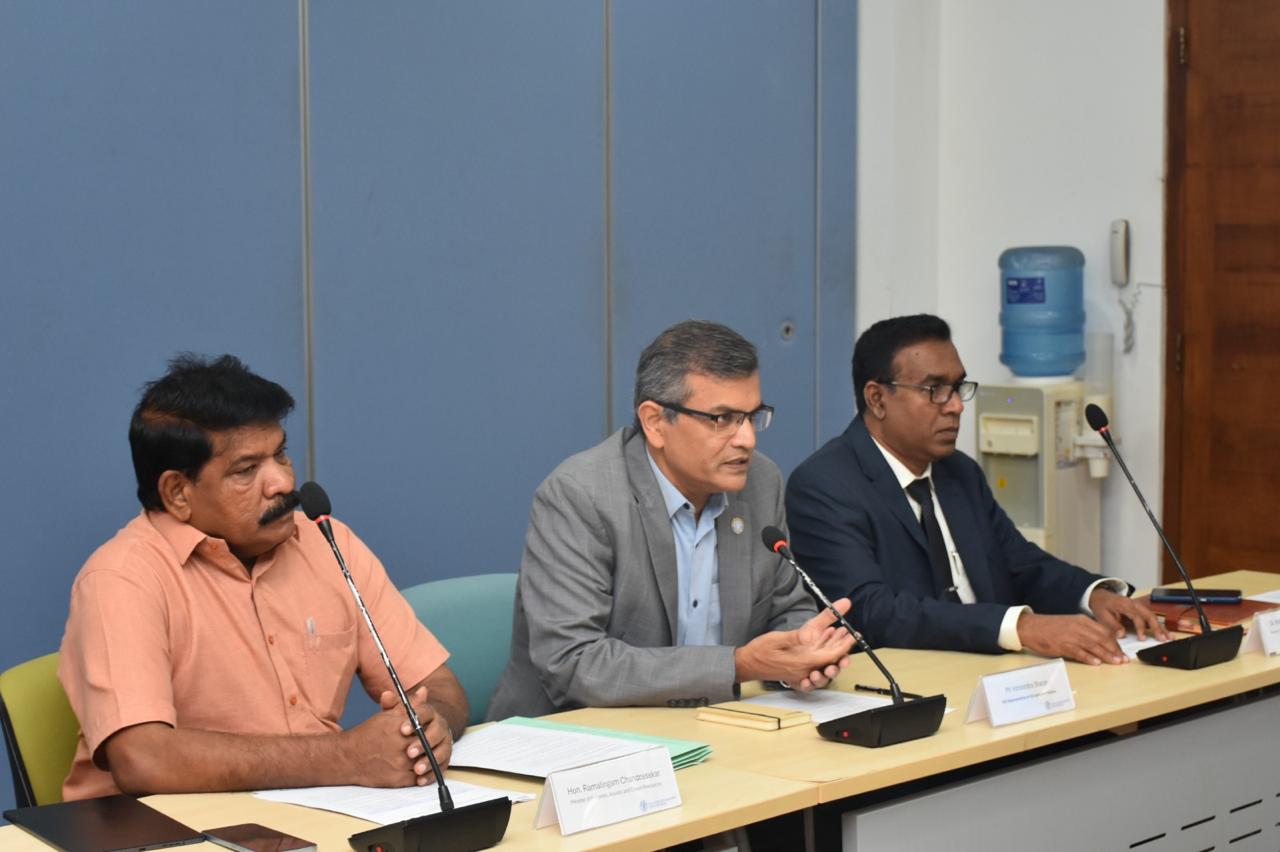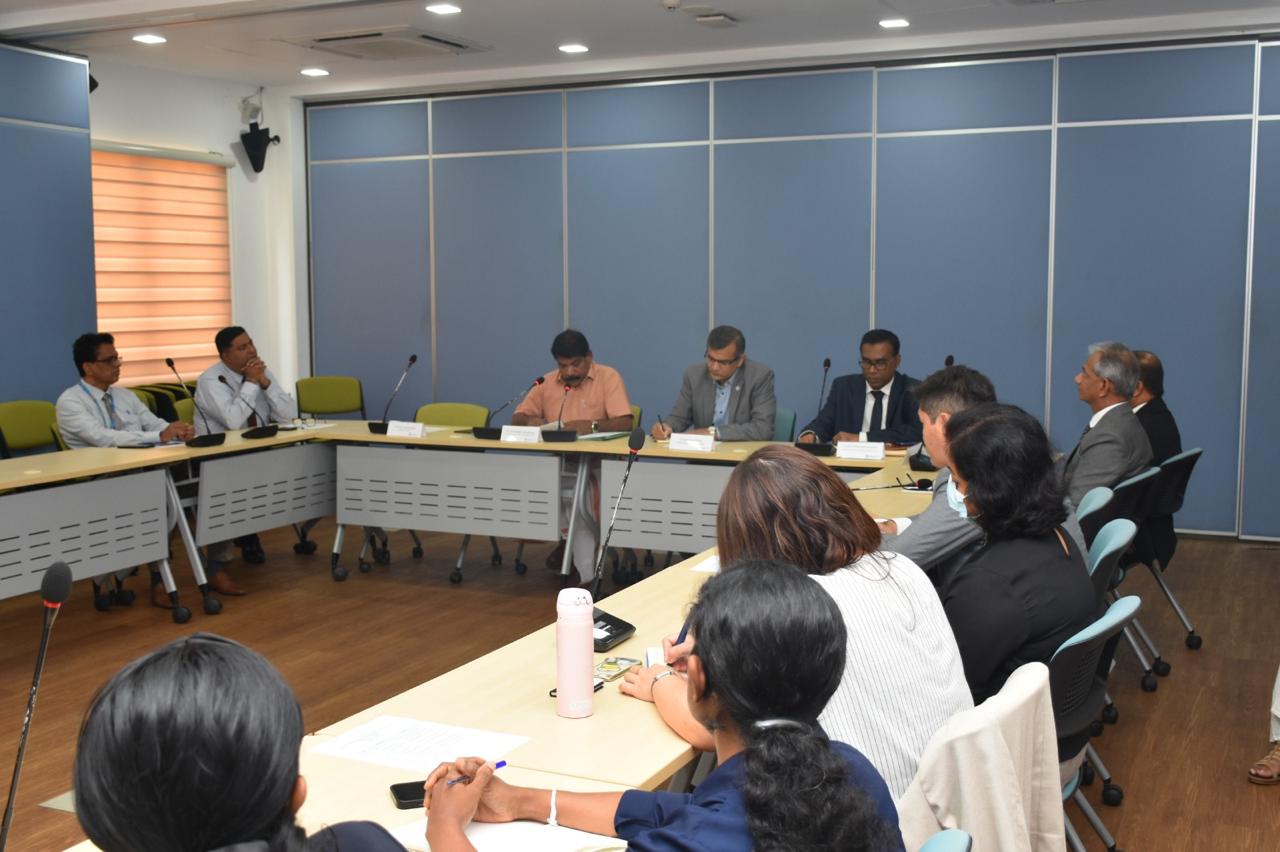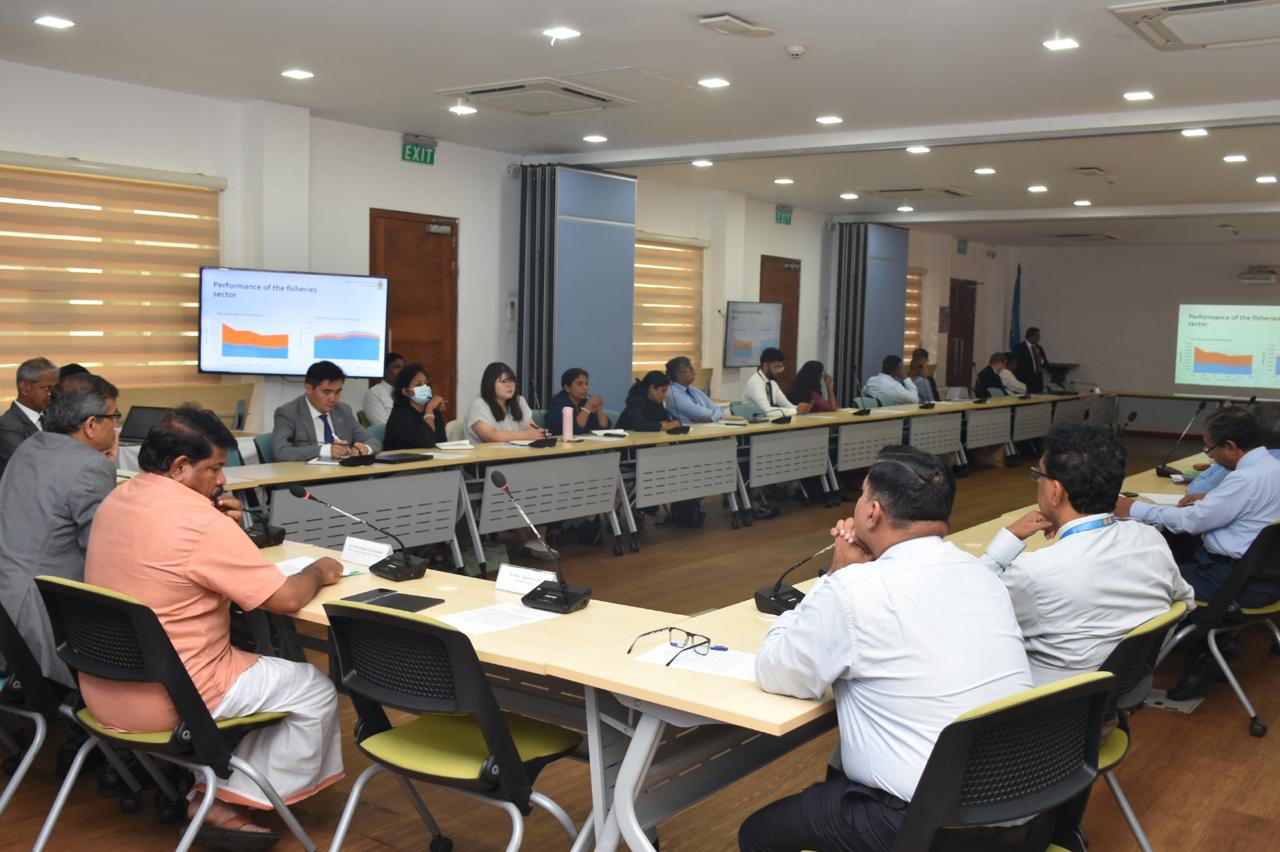
Minister Ramalingam Chandrasekar addresses the second quarterly meeting of the Development Partners Working Group on Fisheries and Aquaculture of FAO!
The Minister of Fisheries, Aquatic and Ocean Resources, Ramalingam Chandrasekar,) addressed the second quarterly meeting of the Development Partners Working Group on Fisheries and Aquaculture, organized by the Food and Agriculture Organization of the United Nations (FAO) today (11th of June). The conference was attended by various development partners, representatives of embassies and representatives of international organizations such as the United Nations Office on Drugs and Crime (UNODC), the United Nations Development Programme (UNDP) and JICA.
The Minister emphasized that the fisheries industry is not just an economic sector but the lifeblood of Sri Lanka. It contributes 1.2% to the GDP and meets over 50% of the country’s animal-based protein requirements. Furthermore, it provides employment to nearly 3.7% of the workforce and earns over US$ 300 million of foreign exchange annually. The Minister said that especially this sector directly impacts the lives of the coastal communities.
*Key Presentations*
On behalf of the Ministry, Additional Secretary (Fisheries Resources Management) Dhammika Ranatunga made a comprehensive presentation on government policies and priorities in the fisheries sector, identifying challenges and proposing solutions.
The Food and Agriculture Organization (FAO) presented the activities carried out under their “REEF” program, and the International Labor Organization (ILO) mentioned that it is looking forward to initiating a seaweed and Tilapia farming project in the Northern Province.
*A request from development partners*
The Minister emphasized that these challenges are not insurmountable and can be addressed through strong partnerships. The Minister expressed his appreciation for the continued support provided by the Food and Agriculture Organization (FAO).
The Minister respectfully requested all development partners to pay increased and urgent attention to the development priorities of Sri Lanka fisheries sector and to have discussion with the Ministry if there is any parties willing to provide support in the priority areas presented by the Ministry.
Priority Areas:
* Strengthening Aquaculture: with new technologies, improved fry and species resilient to the climate change.
* Modernizing fishing vessels and cold chain infrastructure: To reduce losses and ensure food security.
* Building the resilience of coastal communities: Through nutrition-sensitive programs, health care access and gender equality-related development.
* Supporting regional coordination mechanisms: To provide solutions for the challenges in fisheries sector beyond the borders.
Reforms of the Ministry
The Ministry is undertaking a number of major reforms. A new National Fisheries and Aquaculture Policy is being finalized and a revised Act of Fisheries and Aquatic Resources is being drafted. Reducing post-harvest losses, improving export competitiveness and expanding value-added processes are also among the government objectives. The economic empowerment of women in the sector and even leaving no any fishing community behind are taken as priorities.
The Minister concluded by saying that these goals can be achieved through technical guidance, financial support and diplomatic cooperation. The Minister urged everyone to work together to protect the ocean for future generations, protect the rights of fishers and build a resilient, inclusive and sustainable blue economy.
It was mentioned at the meeting that the Food and Agriculture Organization (FAO) expects to present a joint Action Plan covering both the agriculture and fisheries sectors by August 2025.
The Secretary to the Ministry of Fisheries, Aquatic and Ocean Resources, Dr. B. K. Kolitha Kamal Jinadasa, Additional Secretary (Fishery Resource Management) Dhammika Ranatunga, Heads and officers of institutions affiliated to the Ministry participated in this event.









